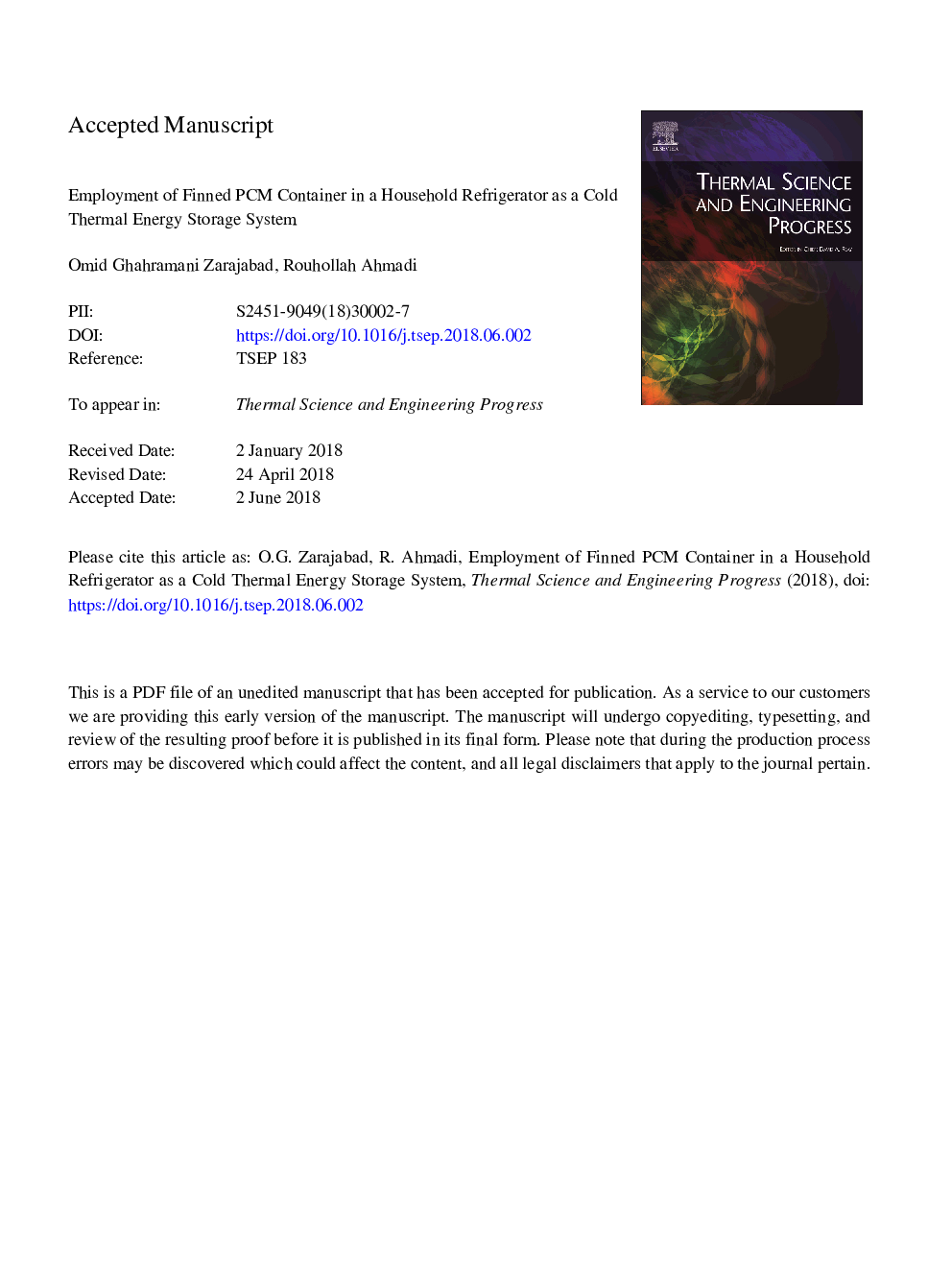| Article ID | Journal | Published Year | Pages | File Type |
|---|---|---|---|---|
| 8918659 | Thermal Science and Engineering Progress | 2018 | 23 Pages |
Abstract
Implementation of the Cold Thermal Energy Storage (CTES) system is one of the effective ways to reduce energy consumption and damping environmental pollutions. In this study, a household refrigerator with ceiling type evaporator is considered to equip it with CTES system. According to ASHRAE standard, the temperature ranges of the household refrigerator is between 274 and 280â¯K, and hence water is used as phase change material (PCM). Owing to the low thermal conductivity of water impact of the extended surface in the container was investigated. Hence, first, a bare cubic PCM container, as well as several finned containers, are examined, numerically. Bare PCM container could maintain the refrigerator's cabin temperature in the standard condition, just for 30â¯min. Results show that adding three fins to PCM container, as the best choice, can keep the refrigerator's temperature in the standard temperature range for 68â¯min. In consequence, the operation of the refrigerator equipped with a PCM container with three fins is examined, experimentally. The experimental results of charging and discharging process show the good consistency with the numerical results. Furthermore, it is obtained that using finned CTES system, would reduce compressor's energy consumption about 17.4% per day. Due to lower electrical demand for refrigerator, it would diminish the fossil fuel consumption and carbon dioxide emission for 12â¯L and 28â¯kg, respectively.
Related Topics
Physical Sciences and Engineering
Energy
Energy Engineering and Power Technology
Authors
Omid Ghahramani Zarajabad, Rouhollah Ahmadi,
